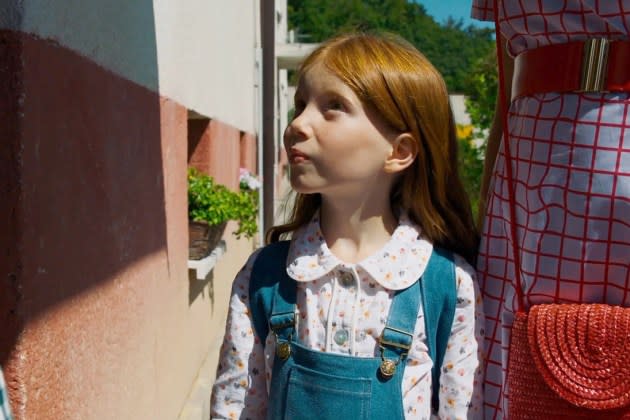‘Tiny Lights’ Review: Empathetic Czech Drama Sees the World Through a Child’s Eyes

If you’re lucky enough to remember memories from your early childhood, you’ll know they tend to be fragmentary, skewed from an outlook incapable of fully grasping the adult world. Czech filmmaker Beata Parkanova captures that feeling beautifully in her film receiving its world premiere at the Karlovy Vary International Film Festival. Related entirely through the viewpoint of a six-year-old girl, Tiny Lights emerges as a small gem.
It helps that the little girl, Amalka, is played by adorable child actress Mia Banko, possessing wide, saucer eyes that are endlessly expressive and long red hair of which Heidi would be jealous. In the opening scene, Amalka hears voices emanating from a closed-door room and, naturally curious, attempts to listen. She hears her grandmother angrily say to her mother, “Happiness? Save it for the fairy tales,” but she has no idea of what it means.
More from The Hollywood Reporter
'Loveable' Review: An Incisive and Nuanced Norwegian Marital Drama
Karlovy Vary Eastern Promises Winners Include 'Virtual Girlfriends,' Turkish Sports Drama
Christine Vachon: "The Strikes Had a Much More Profound" Impact on Indie Film Than COVID
So she goes to play with her very submissive cat, apparently named Mr. Cat. But she tests Mr. Cat’s patience by putting him inside a wooden chest, from which her grandfather (Martin Finger) soon rescues him. She returns to the room, and when she opens the door, the adults grow silent. “I’m bored,” Amalka says petulantly, and her grandmother (Veronika Zilkova) tries to assuage her by promising that she’ll take her to the lake that afternoon.
After naughtily picking flowers that we later learn came from a neighbor’s garden, Amalka has soup for lunch, unaware of the tensions surrounding her. Her grandparents live up to their promise by taking her to the lake, where her grandfather teaches her how to dive. They hike in the woods and pick blueberries, but Amalka throws a tantrum when told they have to leave.
And so the film goes, with Amalka trying to amuse herself as the adults seem to be engaged in tense confrontations, especially when her mother (Elizaveta Maximova) shows up with a strange French man and announces that she’s going with him to Prague. Amalka, of course, doesn’t comprehend what’s happening except when it relates to her, as when her father (Marek Geisberg) gently upbraids her for picking the flowers and tells her that she’ll have to apologize to the neighbor. As the day ends, she goes to bed, unaware of the fissure in her parents’ relationship, and her father wearily reads her a bedtime story that she’s heard a thousand times before but clearly still finds fascinating.
Even with its brief running time, Tiny Lights demands a certain degree of patience with its intense focus on banal childhood preoccupations. The filmmaker also indulges in stylistic flourishes — principally quick inserted shots that look like they were captured on 8mm and feature a series of close-up views of objects and facial features — that are more distracting than illuminating. The strained attempts at artiness just feel self-conscious.
But for most of the film’s running time, Parkanova maintains tight control over her material, making us fully identify with little Amalka and her preoccupations. The film presents things from her viewpoint, even physically; DP Tomas Juricek often places the camera low down, aligning with her diminutive size. The story takes place over the course of a single day, and its poignancy derives from the fact that we, if not Amalka, are fully aware that her life is going to change, possibly forever.
Or maybe she does realize it, as evidenced by the haunting, lingering final shot, in which we see the silhouette of her body as she peers through the large windows of her bedroom, as if trying to see the world beyond her limited perspective.
Best of The Hollywood Reporter

 Yahoo News
Yahoo News 